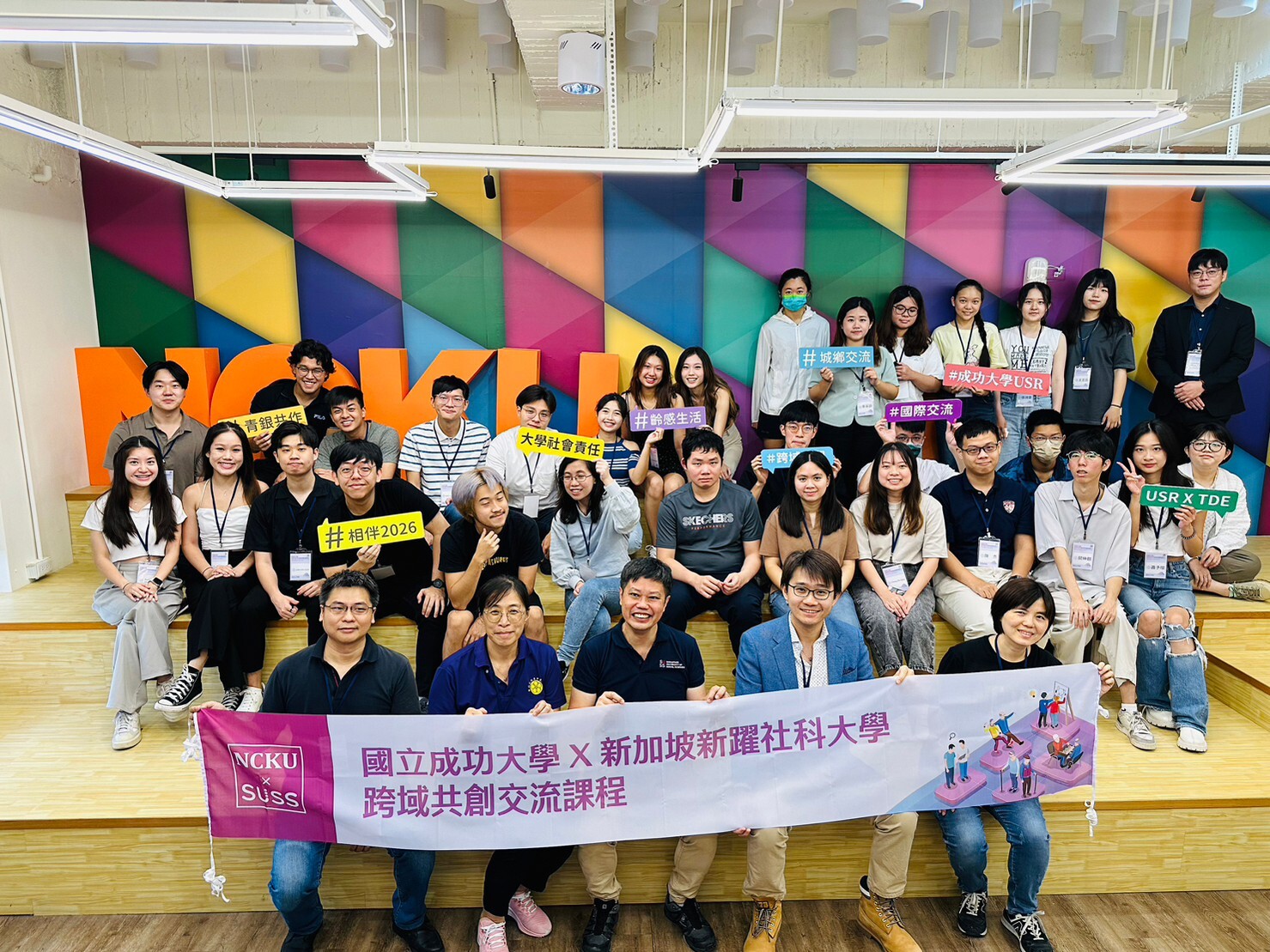SDG3
NCKU's Occupational Therapy Department showcases its professionalism and future developments through open laboratory visits.
On October 27th, in celebration of Occupational Therapist Day, the Occupational Therapy Department at NCKU organized the "OT Together" photo challenge. On this special day, the department also opened its doors for visitors to explore the facilities and labs, aiming to increase awareness about the distinctive features and importance of occupational therapy. The initiative highlights the crucial role of occupational therapy as an indispensable profession within the healthcare system.
Established in 1990 as part of the Rehabilitation Medicine Department, the Occupational Therapy Program at NCKU became an independent department in 1994. Occupational therapy involves using activities to assist patients in recovering cognitive functions, developing adaptive skills, maintaining existing life functions, preventing functional degradation and disability, and reintegrating individuals into mainstream society. The profession provides specialized services in the physiological, psychological, pediatric, and community domains, tailored to the specific needs of patients.
Department Chairperson Ling-Yi Lin noted several distinctive features of NCKU's Occupational Therapy Department. The curriculum aligns with the standards set by the World Federation of Occupational Therapists (WFOT), facilitating seamless connections with occupational therapy programs and certifications in most countries. NCKU is the only institution in the country where students participate in actual dissection during anatomy classes, providing a deeper understanding of neurological and muscular structures. During their senior year, students undergo internships at major medical centers or teaching hospitals to enhance their professional capabilities. The curriculum extends beyond the medical school, allowing students to take courses from other departments. Additionally, the department offers annual opportunities for international exchange programs, broadening students' perspectives and fostering a global outlook.
A sophomore in the Occupational Therapy program, Zheng expressed that occupational therapy aligns with her aspiration for individuals to regain independence through activity design, allowing them to resume their daily lives. Although the first-year curriculum focuses on theory and concepts, the decision to pursue occupational therapy has proven to be the right one. The hands-on experience in anatomy class during the second year, involving actual dissection, provided valuable insights into the distribution of nerves and muscles, surpassing traditional lecture-based learning. Anticipation grows for the specialized courses in the third year and the fourth-year clinical internships in medical institutions.
A second-year master's student, Zhan, highlighted the enriching experiences gained in clinical settings after graduating from NCKU's Occupational Therapy Department. Witnessing ongoing advancements in medicine, she decided to pursue further studies on campus. While considering other institutions, Zhan realized the diverse research opportunities offered by NCKU professors, extending beyond her current research focus.
The highlight of Occupational Therapy Day was a visit to the "Rehabilitation Technology and Biomechanics Laboratory" led by Professor Guo Lijie. Dr. Hsu Jiehsiang, a member of the laboratory, explained that rehabilitation therapy should be based on objective data such as patients' limb movements, yet, in practice, it often relies on subjective judgments of rehabilitation therapists.
The laboratory is equipped with various research instruments, including high-speed infrared cameras for continuous dynamic motion capture, pressure plates for analyzing body center of gravity movement trajectories, wireless muscle sensors, and ultrasound instruments for observing the musculoskeletal system and soft tissue conditions. Through these devices, researchers can easily obtain dynamic data on limb movements and handwriting from both ordinary individuals and patients, understanding differences and assisting in the formulation of rehabilitation plans.
The laboratory has collaborated with NCKU's Advanced Medical Materials Center to develop a remote home-based IoT rehabilitation exercise bike and an exoskeleton robot system to assist in stroke rehabilitation. Professor Guo Lijie joyfully pointed out that the rehabilitation exercise bike has already been commercialized by a startup company and is actively being sold. The exoskeleton robot system for stroke rehabilitation is also expected to become a commercial product in the near future.
Occupational therapy services cater to individuals from infants to the elderly, addressing problems encountered in daily life. The current Occupational Therapist Act requires occupational therapists to execute their services only upon receiving a diagnosis, referral, or medical order from a physician, limiting services to medical facilities. The Occupational Therapy Act Amendment Alliance advocates for relaxing restrictions on the location and scope of occupational therapist practices, allowing them to operate in the community without the need for a diagnosis, referral, or medical order. This proposed change aims to make occupational therapy services more accessible to the general public. Patients requiring diagnosis, medical orders, or referrals would still follow the existing process, allowing physicians to refer them to occupational therapists and optimizing service distribution for the benefit of society.
Established in 1990 as part of the Rehabilitation Medicine Department, the Occupational Therapy Program at NCKU became an independent department in 1994. Occupational therapy involves using activities to assist patients in recovering cognitive functions, developing adaptive skills, maintaining existing life functions, preventing functional degradation and disability, and reintegrating individuals into mainstream society. The profession provides specialized services in the physiological, psychological, pediatric, and community domains, tailored to the specific needs of patients.
Department Chairperson Ling-Yi Lin noted several distinctive features of NCKU's Occupational Therapy Department. The curriculum aligns with the standards set by the World Federation of Occupational Therapists (WFOT), facilitating seamless connections with occupational therapy programs and certifications in most countries. NCKU is the only institution in the country where students participate in actual dissection during anatomy classes, providing a deeper understanding of neurological and muscular structures. During their senior year, students undergo internships at major medical centers or teaching hospitals to enhance their professional capabilities. The curriculum extends beyond the medical school, allowing students to take courses from other departments. Additionally, the department offers annual opportunities for international exchange programs, broadening students' perspectives and fostering a global outlook.
A sophomore in the Occupational Therapy program, Zheng expressed that occupational therapy aligns with her aspiration for individuals to regain independence through activity design, allowing them to resume their daily lives. Although the first-year curriculum focuses on theory and concepts, the decision to pursue occupational therapy has proven to be the right one. The hands-on experience in anatomy class during the second year, involving actual dissection, provided valuable insights into the distribution of nerves and muscles, surpassing traditional lecture-based learning. Anticipation grows for the specialized courses in the third year and the fourth-year clinical internships in medical institutions.
A second-year master's student, Zhan, highlighted the enriching experiences gained in clinical settings after graduating from NCKU's Occupational Therapy Department. Witnessing ongoing advancements in medicine, she decided to pursue further studies on campus. While considering other institutions, Zhan realized the diverse research opportunities offered by NCKU professors, extending beyond her current research focus.
The highlight of Occupational Therapy Day was a visit to the "Rehabilitation Technology and Biomechanics Laboratory" led by Professor Guo Lijie. Dr. Hsu Jiehsiang, a member of the laboratory, explained that rehabilitation therapy should be based on objective data such as patients' limb movements, yet, in practice, it often relies on subjective judgments of rehabilitation therapists.
The laboratory is equipped with various research instruments, including high-speed infrared cameras for continuous dynamic motion capture, pressure plates for analyzing body center of gravity movement trajectories, wireless muscle sensors, and ultrasound instruments for observing the musculoskeletal system and soft tissue conditions. Through these devices, researchers can easily obtain dynamic data on limb movements and handwriting from both ordinary individuals and patients, understanding differences and assisting in the formulation of rehabilitation plans.
The laboratory has collaborated with NCKU's Advanced Medical Materials Center to develop a remote home-based IoT rehabilitation exercise bike and an exoskeleton robot system to assist in stroke rehabilitation. Professor Guo Lijie joyfully pointed out that the rehabilitation exercise bike has already been commercialized by a startup company and is actively being sold. The exoskeleton robot system for stroke rehabilitation is also expected to become a commercial product in the near future.
Occupational therapy services cater to individuals from infants to the elderly, addressing problems encountered in daily life. The current Occupational Therapist Act requires occupational therapists to execute their services only upon receiving a diagnosis, referral, or medical order from a physician, limiting services to medical facilities. The Occupational Therapy Act Amendment Alliance advocates for relaxing restrictions on the location and scope of occupational therapist practices, allowing them to operate in the community without the need for a diagnosis, referral, or medical order. This proposed change aims to make occupational therapy services more accessible to the general public. Patients requiring diagnosis, medical orders, or referrals would still follow the existing process, allowing physicians to refer them to occupational therapists and optimizing service distribution for the benefit of society.
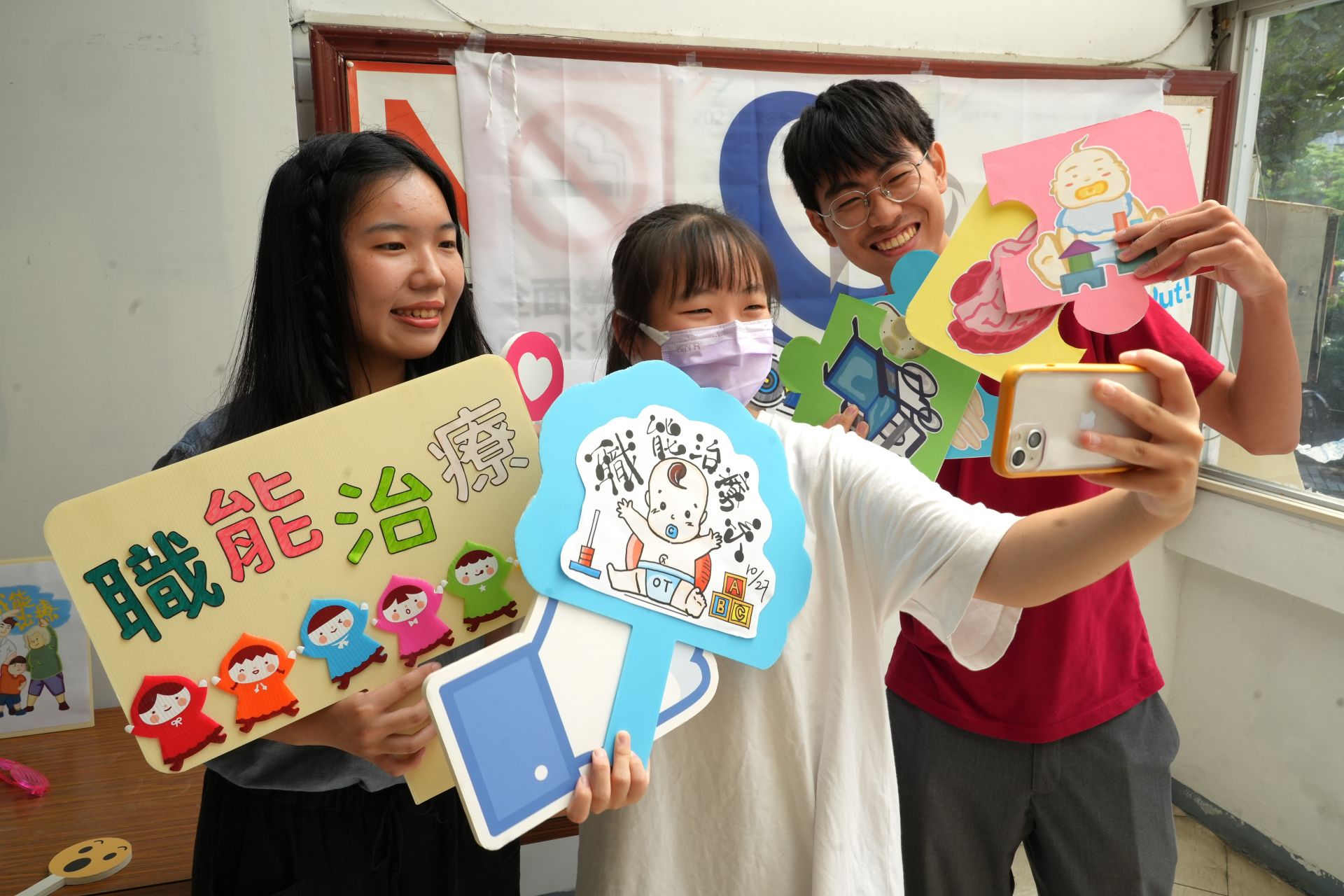
The Occupational Therapy Department launches the "OT Together" photo challenge on Occupational Therapist Day, inviting occupational therapists to participate and share snapshots of their work.
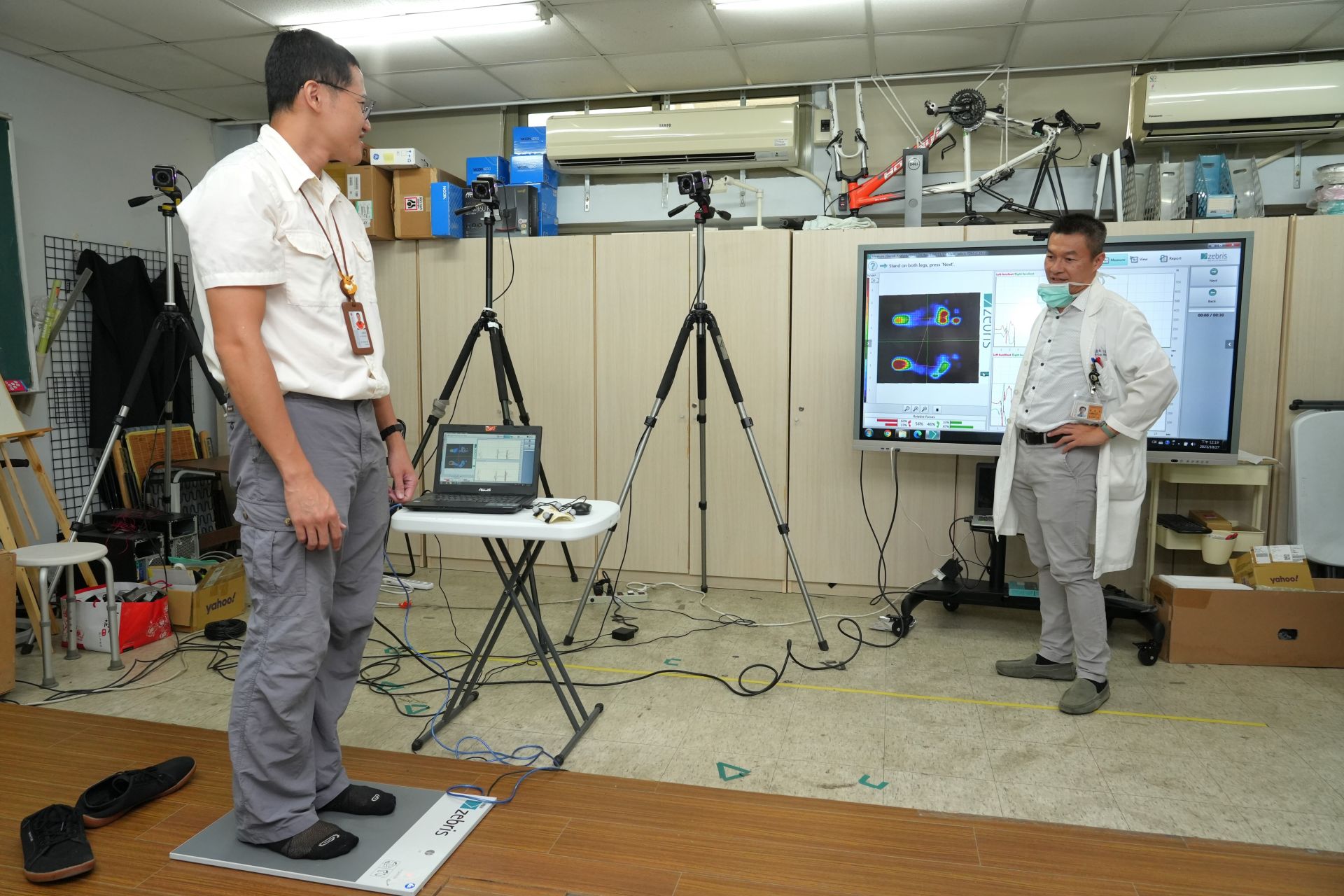
Standing on the pressure plate makes the trajectory of the body's center of gravity movement instantly clear.
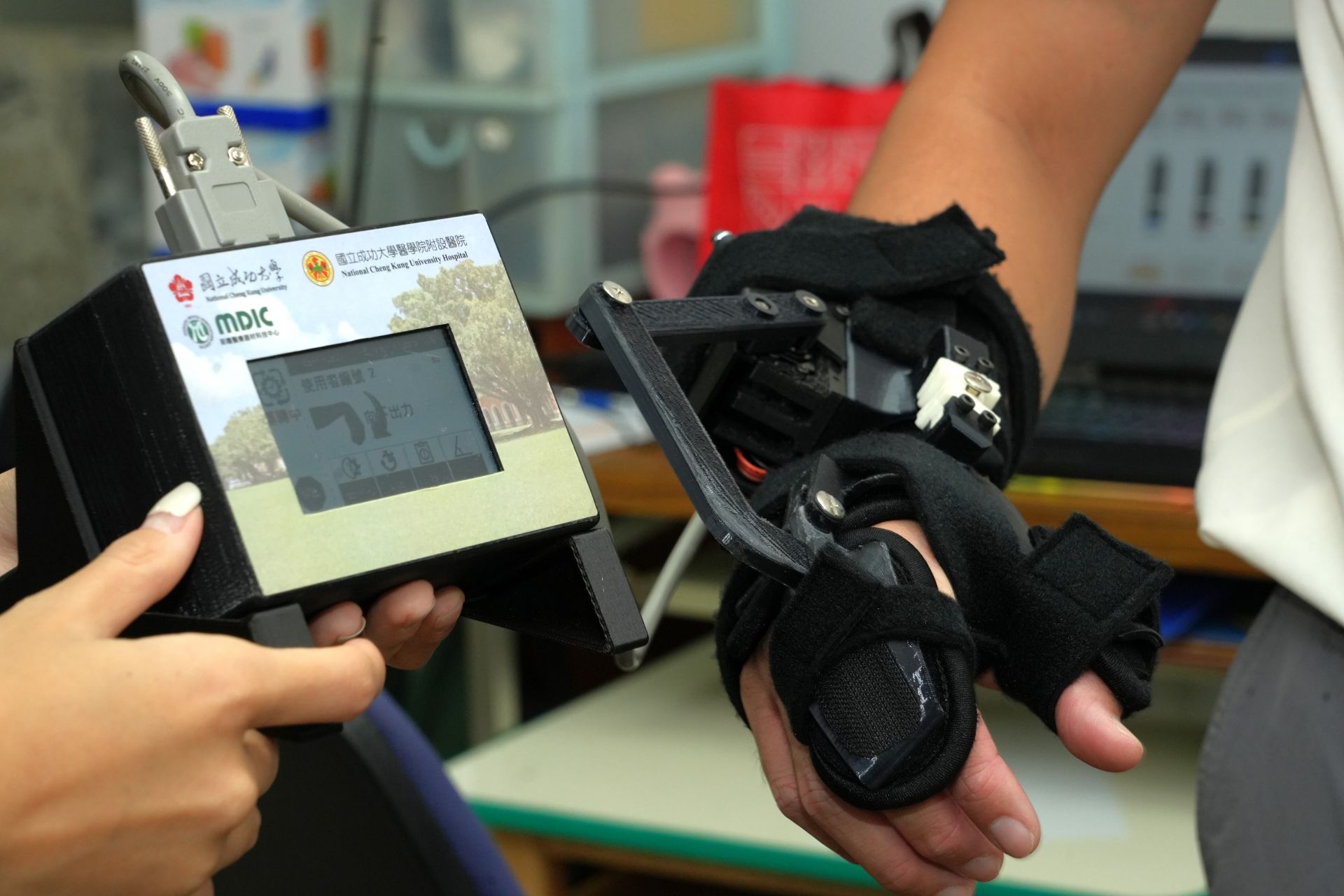
Innovative advancements in stroke patient rehabilitation are poised to become commercial products in the near future.
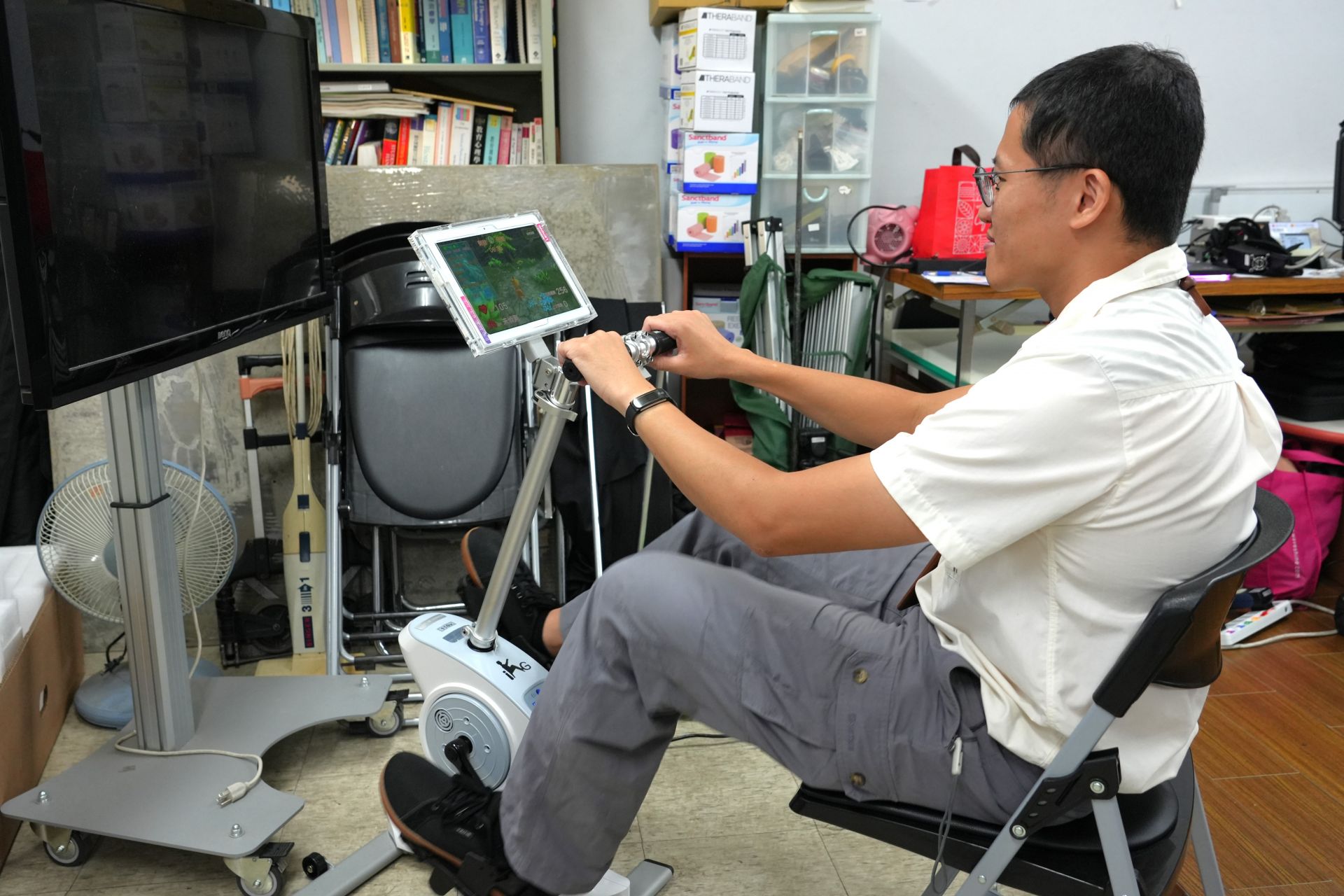
A remote home-based IoT rehabilitation exercise bike offers significant benefits for both healthcare professionals and patients in the rehabilitation process.
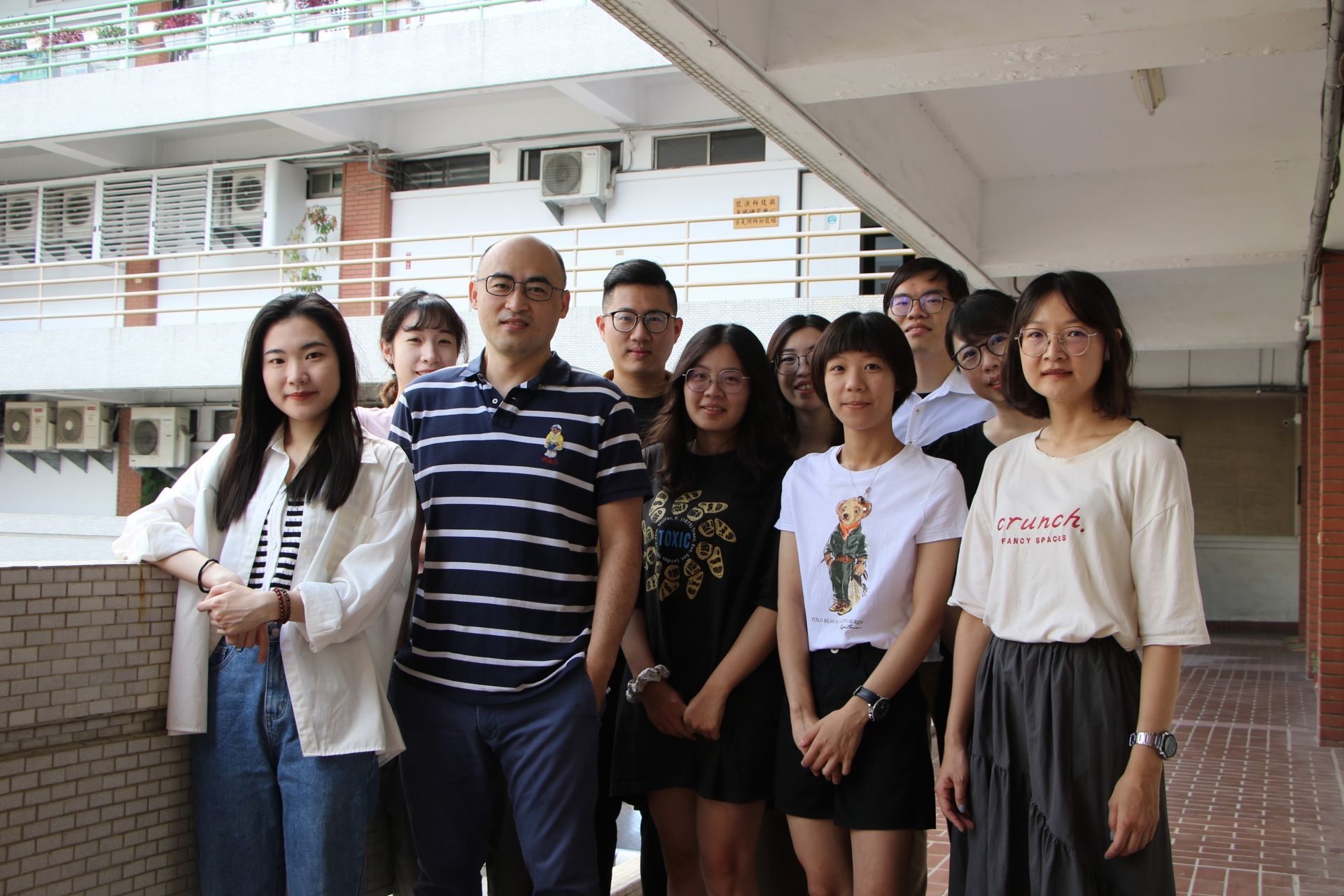
SDG3NCKU and Interdisciplinary Cross-Campus Team Featured on the Cover Story of the American Chemical Society Journal 'ACS Nano'
View more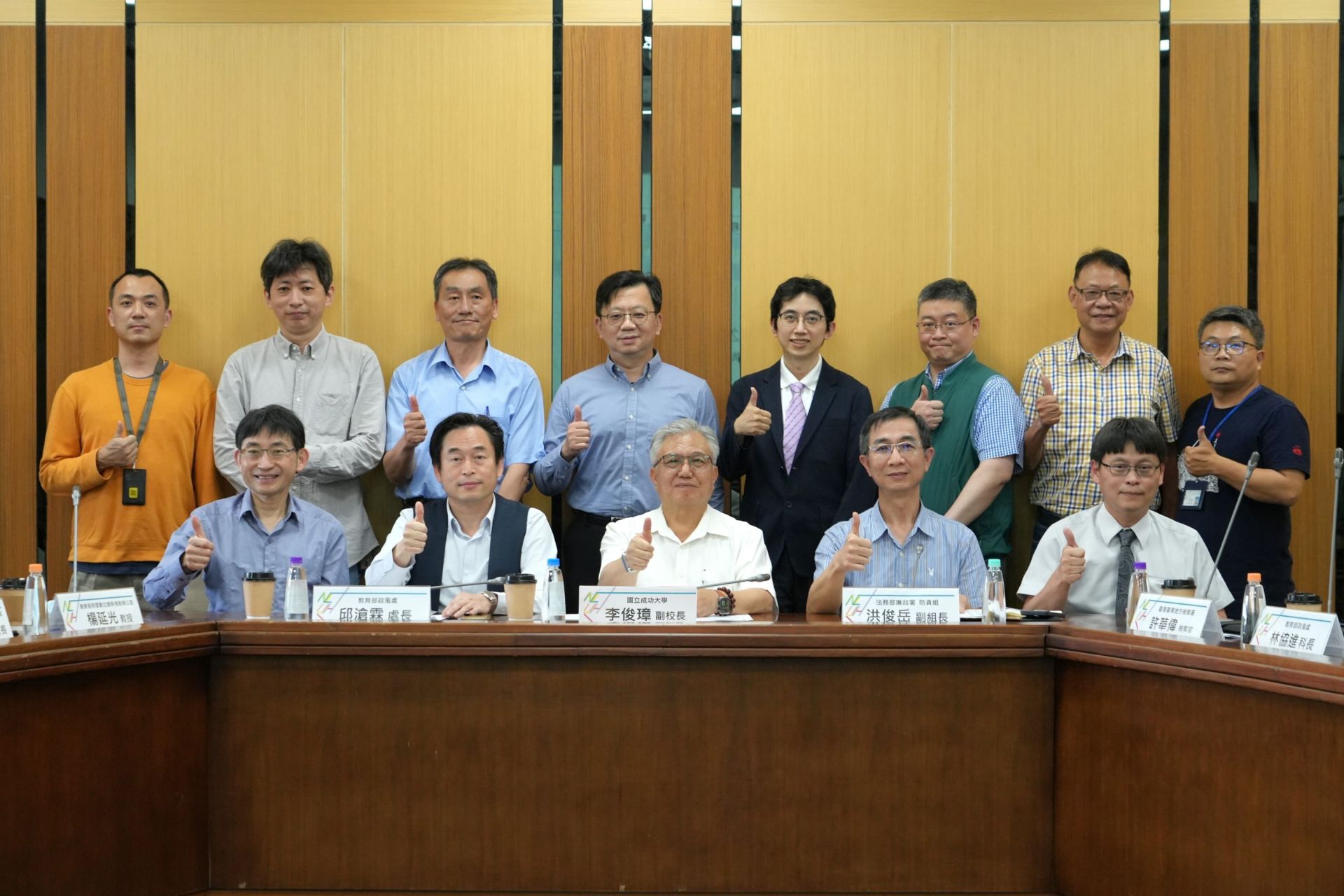
SDG3NCKU Advances Shalun Hospital Project with Integrity Platform, Fostering Cross-Sector Collaboration
View more